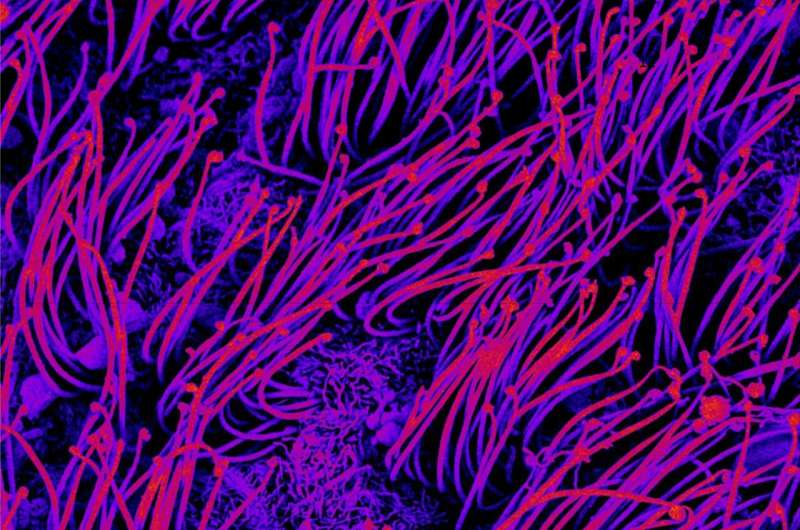
Mice with symptoms that mimic Bardet-Biedl Syndrome (BBS) have difficulty with learning and generating new neurons in the hippocampus. However, according to a new study by Thomas Pak, Calvin Carter, and Val Sheffield of the University of Iowa, published April 22nd in the journal PLOS Genetics, these mental defects can be successfully treated with lithium.
BBS is a rare genetic disorder that causes intellectual disability, vision loss and obesity, and sometimes kidney problems and extra fingers and toes. It is one of several ciliopathies, which are diseases that stem from defective cilia—tiny, finger-like projections on the surface of cells that play important roles in moving fluids, sensing the environment and signaling between cells. Pak, Carter, Sheffield and colleagues wanted to learn more about how ciliopathies cause intellectual disability, so they studied a type of mouse with the same symptoms as people with BBS.
In the new study, the researchers showed that normal mice could quickly be trained to associate a specific environment to a fearful event, but the BBS mice had a harder time with fear memory. Further investigation showed that these learning problems come from an inability to make new neurons in the hippocampus. Treating the mice with lithium, however, increased cell production and improved their learning and memory.
Intellectual disability is the most common type of neurodevelopmental disorder, but few drugs are available to treat it. The new study suggests that lithium may be an effective treatment for the learning and memory defects caused by BBS, and the researchers suggest that further studies should be performed to test the use of this FDA-approved drug. The new findings also demonstrate a novel role for cilia in learning and memory in the brain, potentially improving our understanding of the mechanisms that cause intellectual disability.
Source: Read Full Article
